The consultation for the draft biomethane strategy was launched late last month and gave the first glimpse into how the Government envisaged reaching our 2030 agri-centric biomethane production target. The draft prompted a strong reaction from energy and farming circles alike.
IFA: “After a long wait for the strategy, what has been published for consultation is rather disappointing. It is very light on actual detail, especially on the supports required to get a thriving, farmer-centric, biomethane industry operating here in Ireland.
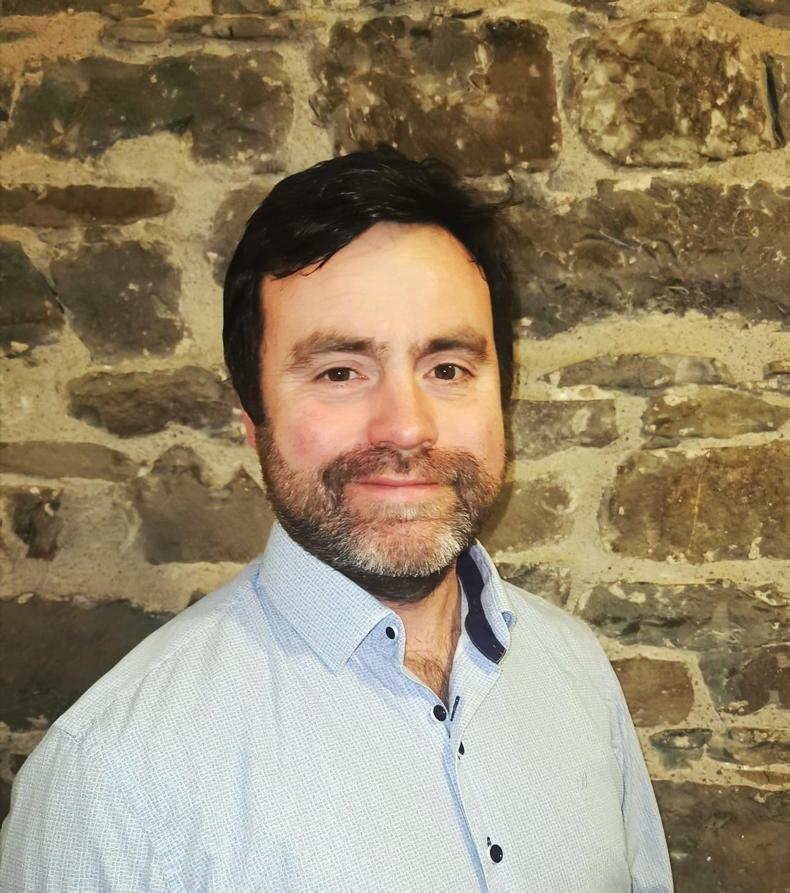
Karol Kissane, Senior Policy Executive Farm Business & Renewables, IFA
“The lack of information on any operational financial supports is very worrying and points towards a strategy of a few large-scale AD plants.
“This will favour an investor-led industry, with farmers’ only involvement being in providing feedstock and receiving digestate. There must be an opportunity for farmers to become involved at all levels in this if it is going to succeed long term.”
– Karol Kissane, senior policy
executive farm business and
renewables, IFA
ICMSA
“We think that there are issues already apparent that will need Government attention and support.
“It’s obvious to us that just ‘letting the market work itself out’ will not work here, and that there must be some form of structural support put in place by the Government if the sector is to achieve its frankly massive potential.”
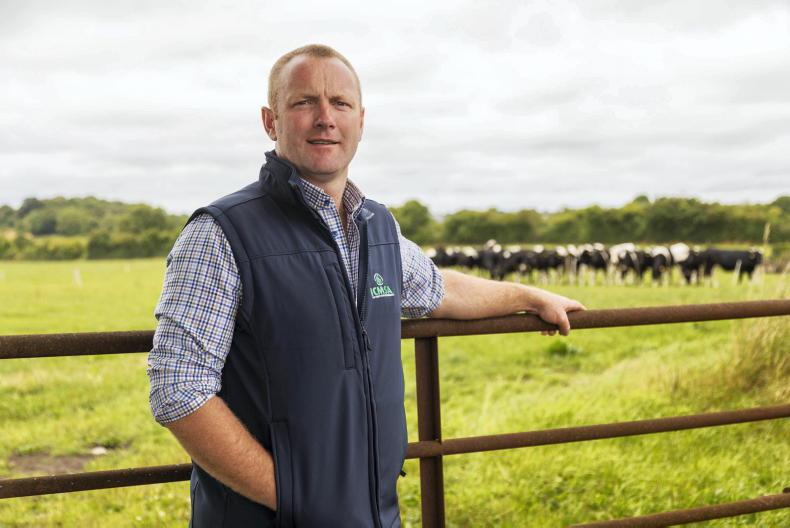
Denis Drennan, ICMSA president.
– Denis Drennan, ICMSA president
IrBEA
“Our members are very disappointed that the draft strategy does not contain any detailed economic modelling, any commitment in terms of funding incentives or supports to mobilise the sector or any trajectory for the delivery of projects and Government target.
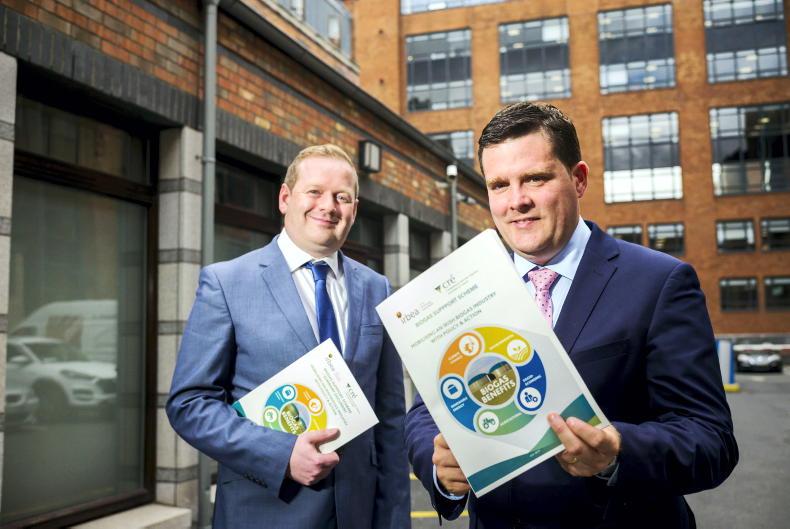
Seán Finan, CEO of the Irish Bioenergy Association.
“The strategy does not provide details of the significant actions needed to address the policy and regulatory blockages associated with replacing chemical fertiliser with digestate. In its current form, the strategy will not deliver any additional biomethane plants in Ireland.”
– Seán Finan, CEO of the Irish Bioenergy Association
RGFI
“We welcome the main thrust of the draft, and in particular, the principle that Ireland should develop biomethane for end uses which include hard-to-abate sectors. Biomethane should be directed to those sectors with the most economic impact, with high thermal energy use, and where it will have the most impact in achieving substantial decarbonisation benefits.
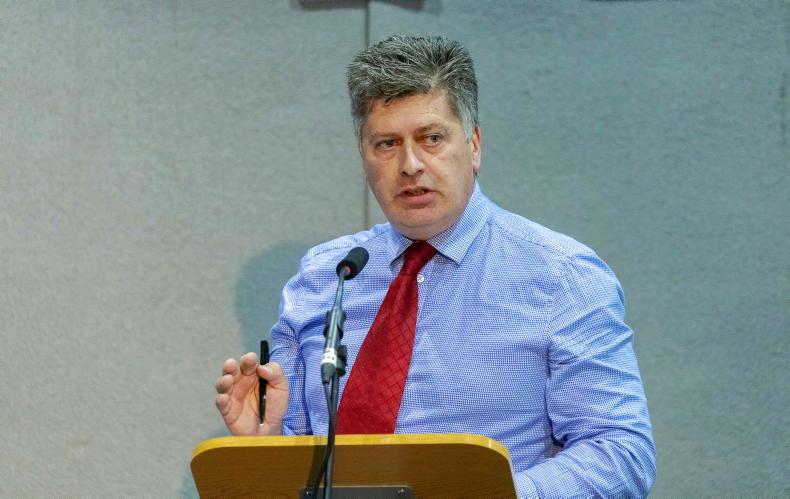
PJ McCarthy, CEO of Renewable Gas Forum Ireland.
“In particular, the agri sector and our indigenous agri-food companies need competitive and sustainable solutions and must be able to compete and secure biomethane on the open market. The final strategy needs to address this issue and clarify the level of capital funding—a minimum of 50% being required.”
– PJ McCarthy, CEO of Renewable Gas Forum Ireland
CRÉ
“We’re very pleased to see recognition that biomethane from food and garden wastes could deliver up to 10% of the national target.

Ben Martin, CRÉ CEO.
"We look forward to this sector’s development, in particular the opportunities for soil health and nutrient management offered by advanced digestate products and the numerous by-products available from the anaerobic digestion process.”
– Ben Martin, CEO, Cré, the Composting and Anaerobic Digestion Association of Ireland
IGGG
“IGGG welcomes the public consultation. However, we believe the main focus to date has been on slurry and grass as feedstock.
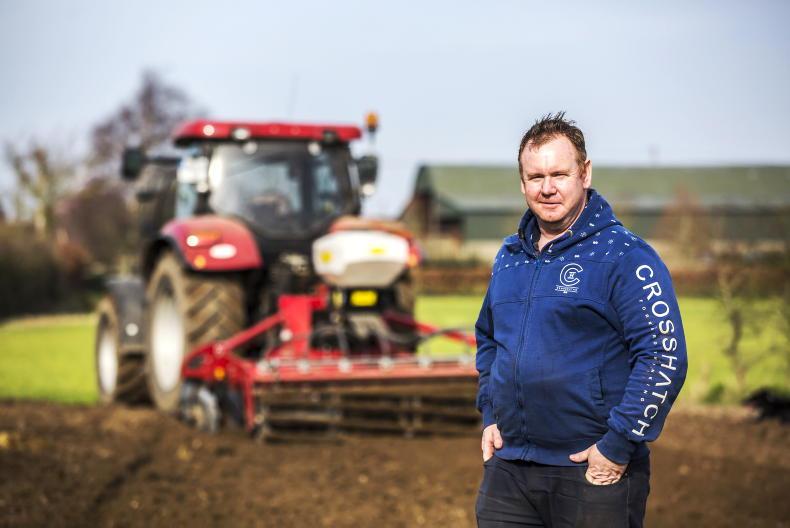
Bobby Miller, chair of the Irish Grain Growers' Group.
"AD plants will not run on slurry alone. Wholecrop, straw, beet, and red clover/grass (in a tillage rotation), etc, and tillage land for digestate management could be part of the biomethane strategy. It would be in the best interest of policymakers to re-examine the need for tillage when it comes to the final strategy. Ownership of these AD plants should be encouraged to be in farmers'' hands.”
– Bobby Miller, IGGG chair
We spoke with some of Ireland’s key anaerobic digestion developers, those with multiple projects in the pipeline, about their thoughts on the strategy. Many of these developers contributed to the initial phase of stakeholder engagement with the strategy.
ClonBio Group
“This draft is really disappointing. A strategy is supposed to be a plan of specific actions that fit together to achieve a clear goal.

James Cogan, EU Government Affairs, industry & policy director, ClonBio Group.
"There are no actions in this draft that will result in a few hundred, or even a few new AD plants coming into existence by 2030 or any time. The draft is just a collection of musings on AD. The signal it sends is that Ireland is not open to AD business. There is not a single thing in the draft you could point to that is going to make a difference and encourage someone to put their money or time into the sector. Any acceptance, celebration, or support for this draft by stakeholders would simply be ''emperor’s new clothes syndrome''.”
– James Cogan, EU Government affairs, industry and policy director, ClonBio Group
Biocore Environmental
“Biocore Environmental are extremely disappointed that after five years of waiting, the draft document released by the Department fails to deliver any meaningful roadmap to a sustainable biomethane industry.
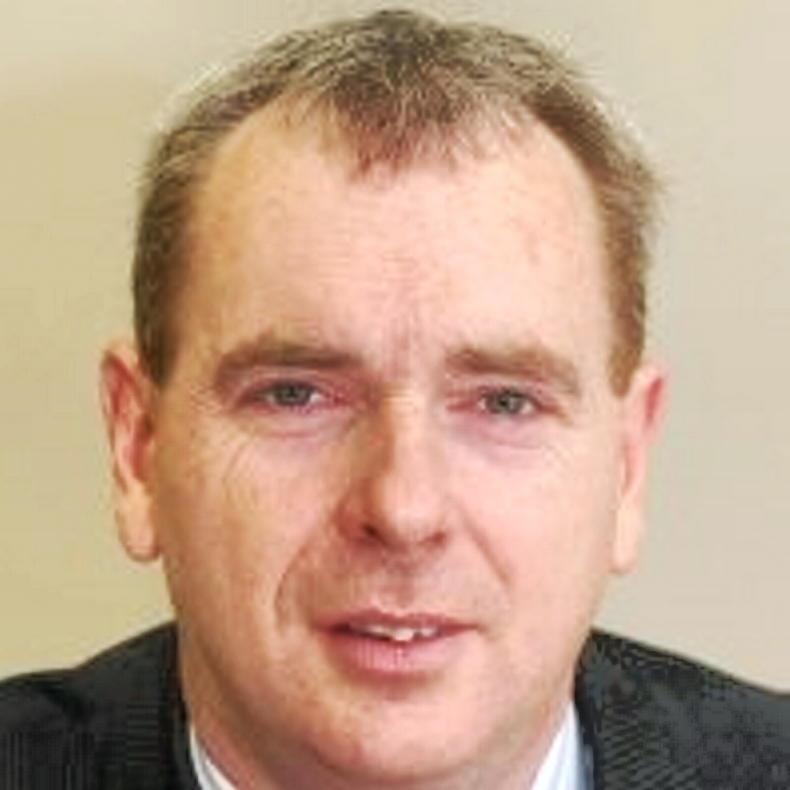
Declan Murray, CEO Biocore Environmental.
"The mechanisms for developing an industry are tried and tested by all other members of the EU, so Ireland’s failure to move forward is a devastating reflection on Government policy. Unless the Government produces a realistic pricing model, in addition to significant changes to the planning and permitting process, the big opportunity that exists in Ireland today to become a major renewable gas producer will be lost.”
– Declan Murray, CEO Biocore Environmental
Carbon AMS
“We welcome the publication of the strategy and the recognition of the significant role that biomethane will play in delivering the binding climate targets for 2030.
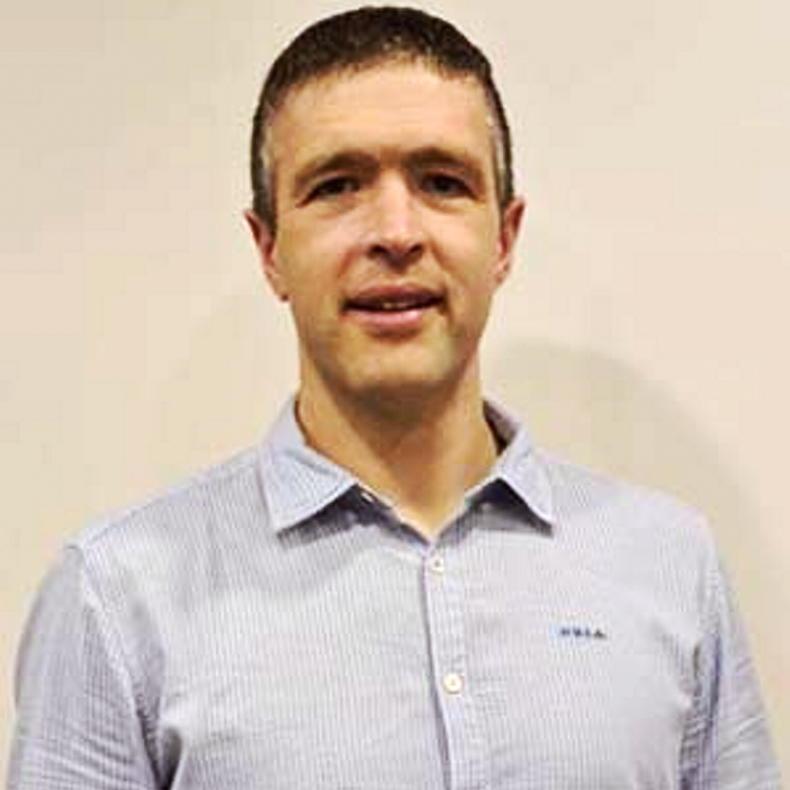
Patrick Harte, CTO, Carbon AMS.
"We also welcome the acknowledgment that it will require collaboration across stakeholders, which has rarely been seen before, to enable this strategy. We all have a responsibility to deliver and enable this industry. To that end, there are challenges, and a practical road map for delivery is required to deal with those and deliver the desired outcome of a sustainable biomethane industry.”
– Patrick Harte, CTO, Carbon AMS
Local Power
“The publication of the draft strategy is significant in the development of a viable biomethane industry in Ireland.
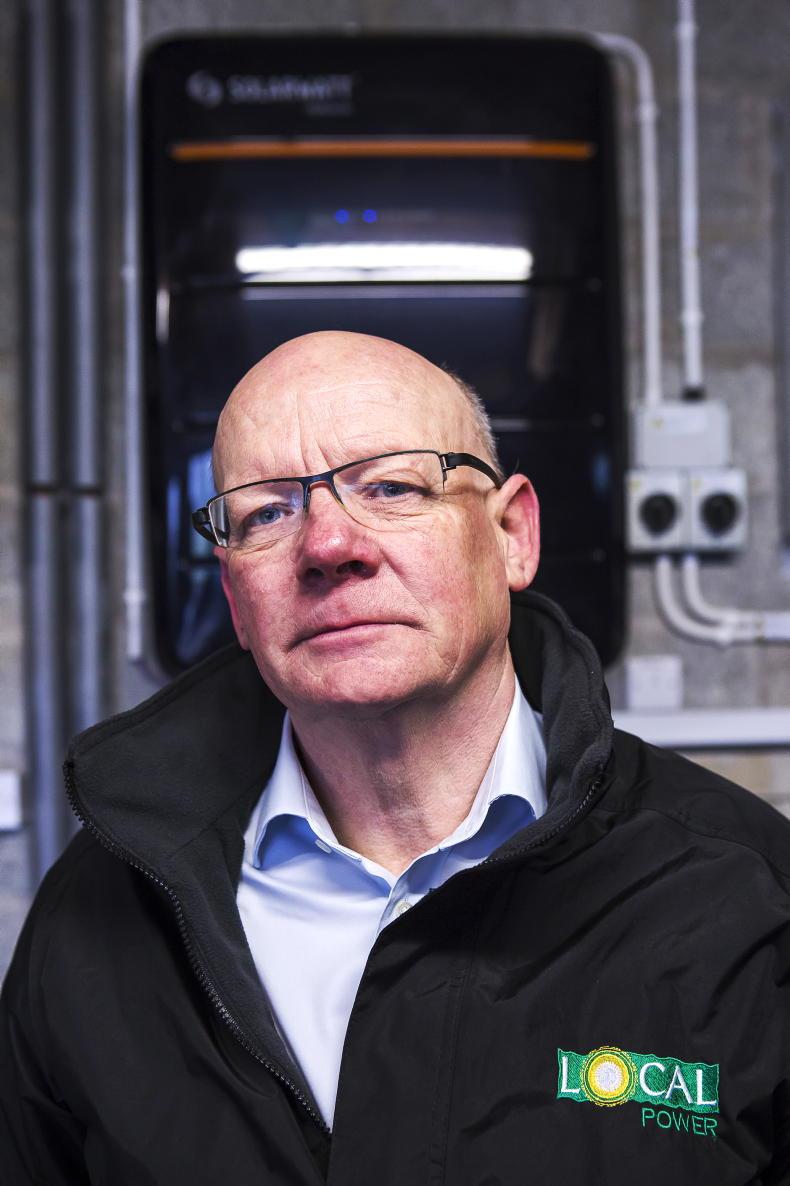
Pat Smith, CEO of Local Power.
"However, the document lacked clarity in the form and amount of Government supports that will be offered, and a timeline of when these are likely to be available. The kWh payment level required to make agri-based AD plants work economically was also seriously understated in the document. Grant supports of 40 to 50% will be critical to ensure that biomethane projects can be financed and banked within the country. These levels of supports will also help in reducing the costs for businesses who will have to purchase the biomethane produced to meet their renewable heat obligations.”
– Pat Smith, managing director, Local Power
Stream BioEnergy
“While the publication of a draft National Biomethane Strategy is welcome, the document lacks detail on support policies for the sector, which is both disappointing and concerning.
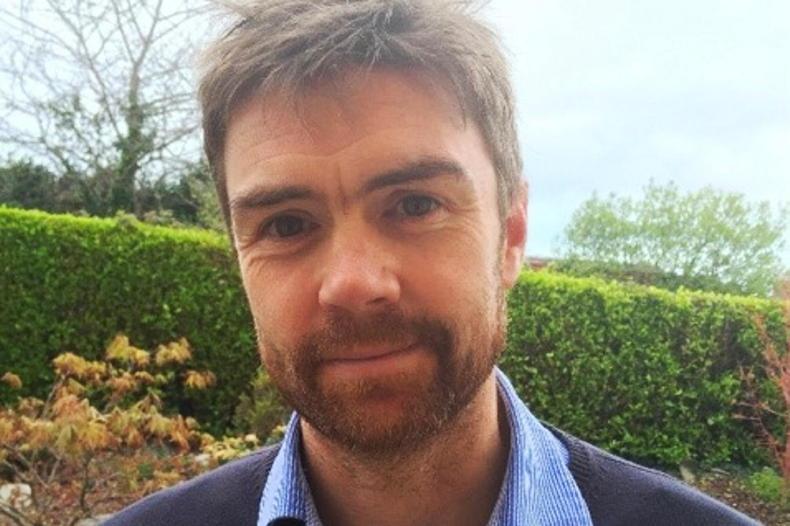
Morgan Burke, chief operating officer, Stream BioEnergy.
"Considering the target to produce 5.7 TWh per annum by 2030, and the lengthy project development timelines in this country, adequate support schemes must be implemented without further delay. This is crucial if there is to be any chance of achieving this level of biomethane production, which is essential for delivering our sustainability and decarbonisation ambitions.”
– Morgan Burke, chief operating officer, Stream BioEnergy
CycleØ
“CycleØ welcomes the publication of Ireland’s Draft National Biomethane Strategy and its focus on an agri-led and farmer-centric industry emphasising sustainable feedstocks.

James Manley, country manager, Ireland CycleØ.
"We eagerly anticipate the establishment of a standardised code of practice to facilitate the planning process, coupled with a well-defined Government strategy to bolster biomethane production. The final publication of the National Biomethane Strategy should happen promptly.”
– James Manley, country manager, CycleØ
Future Biogas
“There is great potential for the Irish AD sector, and the strategy is an important first step in giving the industry guidance and confidence.

Dr Nick Primmer, policy lead at Future Biogas.
"We are also positive about the strategy being led by the agricultural sector and its focus on farmers, which is a key part of the Future Biogas model. It would be good to see more consideration on CO2 sequestration, however, as this is the future of AD.”
– Dr Nick Primmer, policy lead at Future Biogas
Strategic Power
“The draft strategy confirms our plant design size at 40 gigawatt hours (GWh).

Peter Peter Watters, CEO, Strategic Power.
"My personal experience in Ireland is that there are very few biogas upgrade units below 10 GWh commercially available. I am more optimistic about the number of 40GWh plants we can build by 2030. However, the cost of biomethane v natural gas from hydrocarbon sources appears higher in the strategy than elsewhere in the US and EU.”
– Peter Watters, CEO Strategic Power
Bord na Móna
“Bord na Móna welcomes the Government’s decision to open a consultation on the Draft National Biomethane Strategy. At Bord na Móna, we see renewable gas and bioenergy, including biomethane and green hydrogen, playing a vital role in decarbonising Ireland’s energy sector. As a climate solutions and renewable energy company, Bord na Móna is investing heavily in renewable energy projects. Bord na Móna has planning permission for an 80,000 tonne AD facility in Cul na Móna in Co Laois.”
Consultation
To make your thoughts known, take part in the online consultation here.
The author Stephen Robb is currently
involved in a family/community proposal for an anaerobic
digestion facility in Co Donegal.
The consultation for the draft biomethane strategy was launched late last month and gave the first glimpse into how the Government envisaged reaching our 2030 agri-centric biomethane production target. The draft prompted a strong reaction from energy and farming circles alike.
IFA: “After a long wait for the strategy, what has been published for consultation is rather disappointing. It is very light on actual detail, especially on the supports required to get a thriving, farmer-centric, biomethane industry operating here in Ireland.

Karol Kissane, Senior Policy Executive Farm Business & Renewables, IFA
“The lack of information on any operational financial supports is very worrying and points towards a strategy of a few large-scale AD plants.
“This will favour an investor-led industry, with farmers’ only involvement being in providing feedstock and receiving digestate. There must be an opportunity for farmers to become involved at all levels in this if it is going to succeed long term.”
– Karol Kissane, senior policy
executive farm business and
renewables, IFA
ICMSA
“We think that there are issues already apparent that will need Government attention and support.
“It’s obvious to us that just ‘letting the market work itself out’ will not work here, and that there must be some form of structural support put in place by the Government if the sector is to achieve its frankly massive potential.”

Denis Drennan, ICMSA president.
– Denis Drennan, ICMSA president
IrBEA
“Our members are very disappointed that the draft strategy does not contain any detailed economic modelling, any commitment in terms of funding incentives or supports to mobilise the sector or any trajectory for the delivery of projects and Government target.

Seán Finan, CEO of the Irish Bioenergy Association.
“The strategy does not provide details of the significant actions needed to address the policy and regulatory blockages associated with replacing chemical fertiliser with digestate. In its current form, the strategy will not deliver any additional biomethane plants in Ireland.”
– Seán Finan, CEO of the Irish Bioenergy Association
RGFI
“We welcome the main thrust of the draft, and in particular, the principle that Ireland should develop biomethane for end uses which include hard-to-abate sectors. Biomethane should be directed to those sectors with the most economic impact, with high thermal energy use, and where it will have the most impact in achieving substantial decarbonisation benefits.

PJ McCarthy, CEO of Renewable Gas Forum Ireland.
“In particular, the agri sector and our indigenous agri-food companies need competitive and sustainable solutions and must be able to compete and secure biomethane on the open market. The final strategy needs to address this issue and clarify the level of capital funding—a minimum of 50% being required.”
– PJ McCarthy, CEO of Renewable Gas Forum Ireland
CRÉ
“We’re very pleased to see recognition that biomethane from food and garden wastes could deliver up to 10% of the national target.

Ben Martin, CRÉ CEO.
"We look forward to this sector’s development, in particular the opportunities for soil health and nutrient management offered by advanced digestate products and the numerous by-products available from the anaerobic digestion process.”
– Ben Martin, CEO, Cré, the Composting and Anaerobic Digestion Association of Ireland
IGGG
“IGGG welcomes the public consultation. However, we believe the main focus to date has been on slurry and grass as feedstock.

Bobby Miller, chair of the Irish Grain Growers' Group.
"AD plants will not run on slurry alone. Wholecrop, straw, beet, and red clover/grass (in a tillage rotation), etc, and tillage land for digestate management could be part of the biomethane strategy. It would be in the best interest of policymakers to re-examine the need for tillage when it comes to the final strategy. Ownership of these AD plants should be encouraged to be in farmers'' hands.”
– Bobby Miller, IGGG chair
We spoke with some of Ireland’s key anaerobic digestion developers, those with multiple projects in the pipeline, about their thoughts on the strategy. Many of these developers contributed to the initial phase of stakeholder engagement with the strategy.
ClonBio Group
“This draft is really disappointing. A strategy is supposed to be a plan of specific actions that fit together to achieve a clear goal.

James Cogan, EU Government Affairs, industry & policy director, ClonBio Group.
"There are no actions in this draft that will result in a few hundred, or even a few new AD plants coming into existence by 2030 or any time. The draft is just a collection of musings on AD. The signal it sends is that Ireland is not open to AD business. There is not a single thing in the draft you could point to that is going to make a difference and encourage someone to put their money or time into the sector. Any acceptance, celebration, or support for this draft by stakeholders would simply be ''emperor’s new clothes syndrome''.”
– James Cogan, EU Government affairs, industry and policy director, ClonBio Group
Biocore Environmental
“Biocore Environmental are extremely disappointed that after five years of waiting, the draft document released by the Department fails to deliver any meaningful roadmap to a sustainable biomethane industry.

Declan Murray, CEO Biocore Environmental.
"The mechanisms for developing an industry are tried and tested by all other members of the EU, so Ireland’s failure to move forward is a devastating reflection on Government policy. Unless the Government produces a realistic pricing model, in addition to significant changes to the planning and permitting process, the big opportunity that exists in Ireland today to become a major renewable gas producer will be lost.”
– Declan Murray, CEO Biocore Environmental
Carbon AMS
“We welcome the publication of the strategy and the recognition of the significant role that biomethane will play in delivering the binding climate targets for 2030.

Patrick Harte, CTO, Carbon AMS.
"We also welcome the acknowledgment that it will require collaboration across stakeholders, which has rarely been seen before, to enable this strategy. We all have a responsibility to deliver and enable this industry. To that end, there are challenges, and a practical road map for delivery is required to deal with those and deliver the desired outcome of a sustainable biomethane industry.”
– Patrick Harte, CTO, Carbon AMS
Local Power
“The publication of the draft strategy is significant in the development of a viable biomethane industry in Ireland.

Pat Smith, CEO of Local Power.
"However, the document lacked clarity in the form and amount of Government supports that will be offered, and a timeline of when these are likely to be available. The kWh payment level required to make agri-based AD plants work economically was also seriously understated in the document. Grant supports of 40 to 50% will be critical to ensure that biomethane projects can be financed and banked within the country. These levels of supports will also help in reducing the costs for businesses who will have to purchase the biomethane produced to meet their renewable heat obligations.”
– Pat Smith, managing director, Local Power
Stream BioEnergy
“While the publication of a draft National Biomethane Strategy is welcome, the document lacks detail on support policies for the sector, which is both disappointing and concerning.

Morgan Burke, chief operating officer, Stream BioEnergy.
"Considering the target to produce 5.7 TWh per annum by 2030, and the lengthy project development timelines in this country, adequate support schemes must be implemented without further delay. This is crucial if there is to be any chance of achieving this level of biomethane production, which is essential for delivering our sustainability and decarbonisation ambitions.”
– Morgan Burke, chief operating officer, Stream BioEnergy
CycleØ
“CycleØ welcomes the publication of Ireland’s Draft National Biomethane Strategy and its focus on an agri-led and farmer-centric industry emphasising sustainable feedstocks.

James Manley, country manager, Ireland CycleØ.
"We eagerly anticipate the establishment of a standardised code of practice to facilitate the planning process, coupled with a well-defined Government strategy to bolster biomethane production. The final publication of the National Biomethane Strategy should happen promptly.”
– James Manley, country manager, CycleØ
Future Biogas
“There is great potential for the Irish AD sector, and the strategy is an important first step in giving the industry guidance and confidence.

Dr Nick Primmer, policy lead at Future Biogas.
"We are also positive about the strategy being led by the agricultural sector and its focus on farmers, which is a key part of the Future Biogas model. It would be good to see more consideration on CO2 sequestration, however, as this is the future of AD.”
– Dr Nick Primmer, policy lead at Future Biogas
Strategic Power
“The draft strategy confirms our plant design size at 40 gigawatt hours (GWh).

Peter Peter Watters, CEO, Strategic Power.
"My personal experience in Ireland is that there are very few biogas upgrade units below 10 GWh commercially available. I am more optimistic about the number of 40GWh plants we can build by 2030. However, the cost of biomethane v natural gas from hydrocarbon sources appears higher in the strategy than elsewhere in the US and EU.”
– Peter Watters, CEO Strategic Power
Bord na Móna
“Bord na Móna welcomes the Government’s decision to open a consultation on the Draft National Biomethane Strategy. At Bord na Móna, we see renewable gas and bioenergy, including biomethane and green hydrogen, playing a vital role in decarbonising Ireland’s energy sector. As a climate solutions and renewable energy company, Bord na Móna is investing heavily in renewable energy projects. Bord na Móna has planning permission for an 80,000 tonne AD facility in Cul na Móna in Co Laois.”
Consultation
To make your thoughts known, take part in the online consultation here.
The author Stephen Robb is currently
involved in a family/community proposal for an anaerobic
digestion facility in Co Donegal.




















 This is a subscriber-only article
This is a subscriber-only article











SHARING OPTIONS: